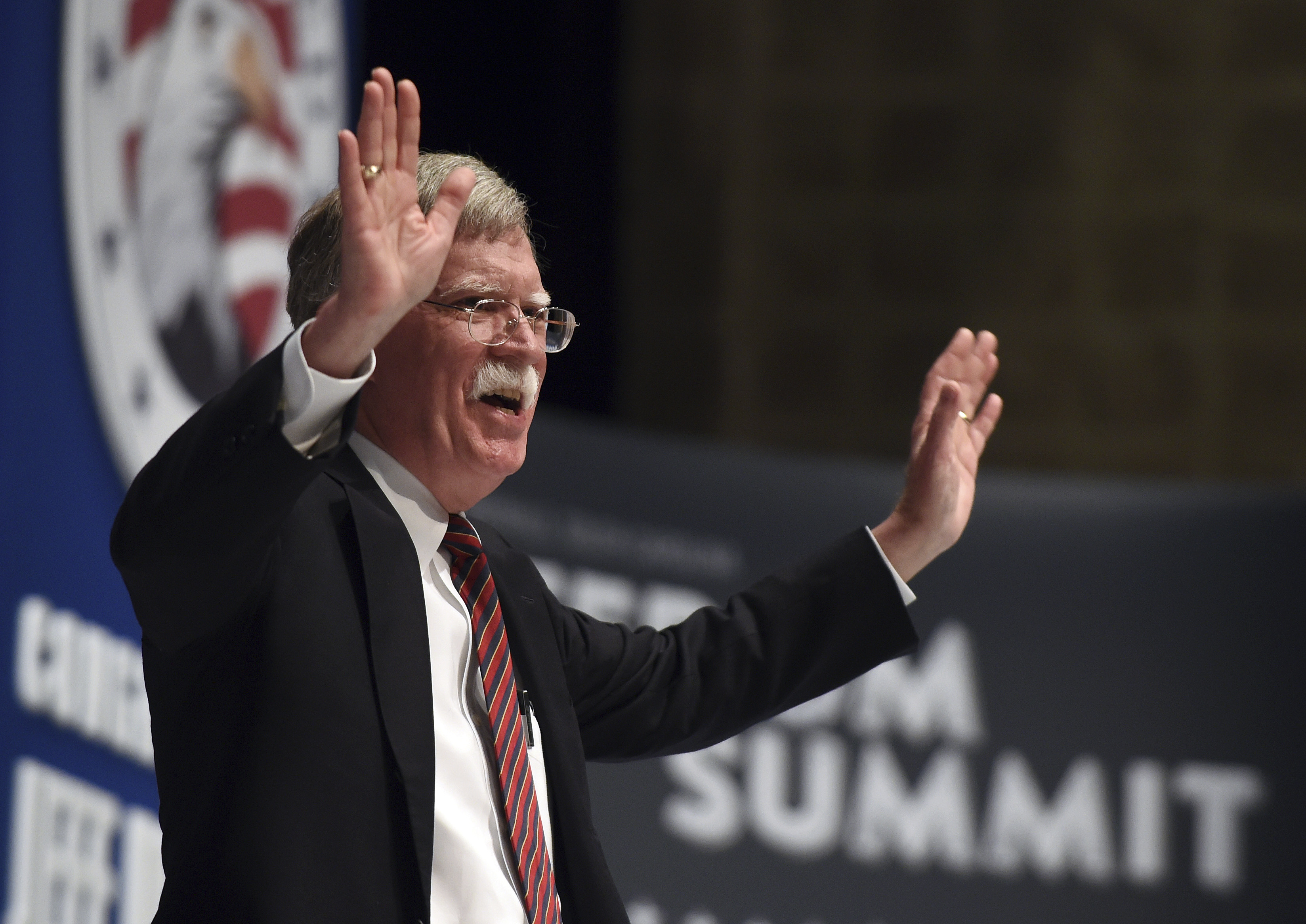President Donald Trump’s new pick for national security adviser, former United Nations Ambassador John Bolton, is nothing short of a sign that he plans on waging war.
One of Bolton’s biggest claims to fame was his unabashed support for the 2003 invasion of Iraq, which he still supports today even though Trump himself was outspokenly critical of it during the 2016 presidential election. As under secretary of state for President George W. Bush, Bolton helped put together the case that Iraq was building weapons of mass destruction — an argument that ultimately proved to be tragically wrong. He also became infamous during his tenure after being accused of trying to force out a pair of intelligence analysts who disagreed with him, as well as generally seeking to subvert the agenda of his more pragmatic boss, Secretary of State Colin Powell.
More troubling than Bolton’s professional background, though, is his thirst for war. Take this excerpt from an editorial he wrote for The New York Times in 2015 that urged military action against Iran.
The inescapable conclusion is that Iran will not negotiate away its nuclear program. Nor will sanctions block its building a broad and deep weapons infrastructure. The inconvenient truth is that only military action like Israel’s 1981 attack on Saddam Hussein’s Osirak reactor in Iraq or its 2007 destruction of a Syrian reactor, designed and built by North Korea, can accomplish what is required. Time is terribly short, but a strike can still succeed.
Bolton’s “shoot first, ask questions later” attitude toward volatile regions of the world was evident more recently as well, in his February editorial for The Wall Street Journal urging a preemptive strike against North Korea.
Pre-emption opponents argue that action is not justified because Pyongyang does not constitute an “imminent threat.” They are wrong. The threat is imminent, and the case against preemption rests on the misinterpretation of a standard that derives from prenuclear, pre-ballistic-missile times. Given the gaps in U.S. intelligence about North Korea, we should not wait until the very last minute. That would risk striking after the North has deliverable nuclear weapons, a much more dangerous situation.
One of Trump’s most prominent critics from the right, MSNBC host Joe Scarborough, located the appointment of Bolton as part of a larger phenomenon of conservatives losing their way.
“Six decades of Republican overreach and corrosive causes have instead led to the rise of Donald Trump and a foreign policy run by John Bolton, an economy guided by Larry Kudlow and a legal team led by conspiracy theorist Joseph DiGenova,” Scarborough wrote in The Washington Post. “Bolton’s elevation to the position of national security adviser is a fitting coda for a movement whose adherents spent decades throwing themselves on an endless array of ideological barricades while vilifying opponents whose responses to Soviet Russia or Islamic fundamentalism were deemed insufficiently harsh.”
Foreign policy journalist Fred Kaplan was even more blunt in his column for Slate: “It’s time to push the panic button. John Bolton’s appointment as national security adviser—a post that requires no Senate confirmation—puts the United States on a path to war. And it’s fair to say President Donald Trump wants us on that path.”
Loren DeJonge Schulman, who worked as a senior aide for former national security adviser Susan Rice under President Barack Obama, also pointed out that “Trump says he wants a team that aligns with his views. How does the neocon of neocons — of the most aggressive and ruthless persuasion — align with a man who condemned our international overextension during his campaign?”

